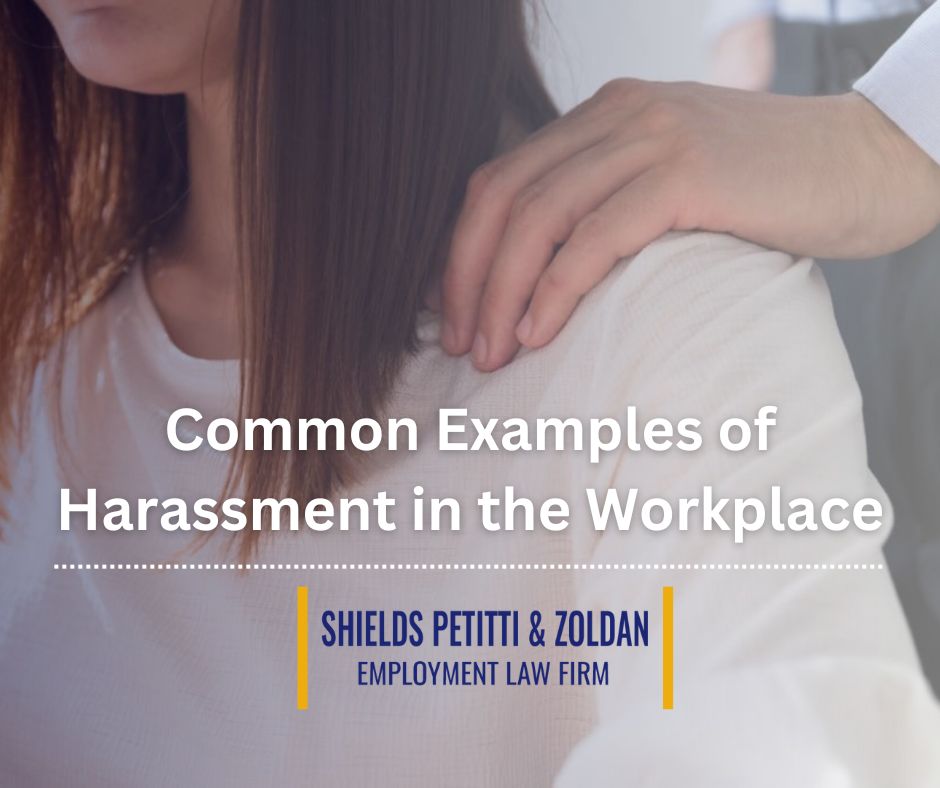
Harassment of any kind has no place at work. But according to a 2018 survey, 81% of women and 43% of men experience some form of sexual harassment in their lifetime. Despite this, many instances of sexual harassment go unreported. And while some actions are obviously inappropriate, today sexual harassment in the workplace can take on more subtle forms. So what is workplace sexual harassment, and what are some workplace harassment examples employees should look for?
What Is Workplace Sexual Harassment?
Workplace sexual harassment is illegal under Title VII of the Civil Rights Act and the Arizona Civil Rights Act. An individual experiences sexual harassment if they are the target of unwelcome verbal, visual, non-verbal, or physical conduct of a sexual nature.
The harassment does not have to be of a sexual nature, however, and can include offensive remarks about a person’s sex. In addition, the conduct must be pervasive enough to create a hostile working environment or affect working conditions. There are two primary types of sexual harassment:
- Quid pro quo harassment. This occurs when a perpetrator requests sexual favors in exchange for something else, such as a promotion or pay raise. It also involves express or implied threats of an adverse employment action against the employee if they refuse to comply with the request.
- Hostile work environment. This happens when an employee is subjected to unwelcome physical or verbal conduct of a sexual nature. The conduct must be severe or pervasive enough to alter the employee’s working conditions or create an abusive work environment.
While quid pro quo harassment is usually easier to identify, hostile work claims may be a little less clear. So what are some examples of harassment in the workplace?
Common Examples of Workplace Sexual Harassment
There is some conduct that is clearly inappropriate sexual harassment, such as unwanted touching of a sexual nature, requests for sexual favors, and sexually explicit comments or gestures.
While these overt forms of harassment certainly still happen in the workplace, subtle forms of harassment are more common and may not be as obvious.
However, any type of sexual harassment can still make an employee uncomfortable, intimidated, or distracted enough that it interferes with their job. Some examples of sexual harassment that might fall into this category include:
- Repeated compliments or comments on an employee’s appearance,
- Repeated comments on somebody’s attractiveness,
- Sending sexually explicit texts or emails,
- Inviting an employee to a meeting under false pretenses,
- Unwanted sexual jokes or comments about someone’s sex life,
- Circulating nude or sexually suggestive photos in the workplace,
- Giving unwanted gifts of a romantic or sexual nature,
- Repeated negative comments on gender,
- Unwanted hugs or other touching, and
- Spreading rumors of a sexual nature.
These are just some workplace harassment examples. It is important to remember that to create a hostile work environment, it is not enough that the conduct is subjectively offensive to the employee.
If a reasonable person in the same circumstances would also consider the behavior offensive, you may have an example of workplace harassment.
What Should I Do If I Experience Workplace Sexual Harassment?
If you’ve experienced sexual harassment in the workplace, you may feel lost and not sure what to do next. If you think you may have a sexual harassment claim, here are some steps to take to help ensure your rights are protected:
- Keep a record of the harassing behavior, including dates, times, and a detailed description of the conduct;
- Report the offending behavior to human resources or a supervisor; and
- Contact a sexual harassment lawyer as soon as possible.
Every civil claim has a statute of limitations, limiting the amount of time you have to file a complaint. It is important to talk to a lawyer as soon as you can, as some claims may have a shorter statute of limitations depending on the case’s circumstances.
Every incident is unique, and you will want an experienced advocate on your side to make sure you don’t miss anything.
Shields Petitti & Zoldan: Experienced Workplace Sexual Harassment Attorneys
Due to the complexities and subtleties surrounding workplace sexual harassment, it can sometimes be difficult to figure out whether you have a claim.
If you feel that you have been sexually harassed in the workplace, contact the experienced attorneys at Shields Petitti & Zoldan, PLC. With over 50 years of combined experience, we are committed to supporting our clients through personalized attention that is tailored to their goals.
To schedule a consultation, call our office, or fill out our online contact form to get started.


